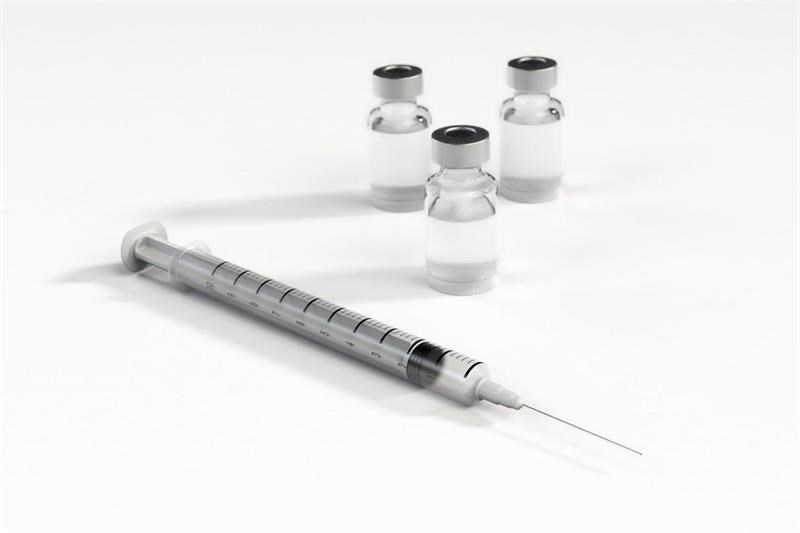Global survey reveals two-thirds of countries not allowing dentists to administer COVID-19 vaccines
Published: 25/02/2021
The FDI World Dental Federation today called for more countries to enable dentists to administer COVID-19 vaccines after a survey of its members revealed the small number of countries currently permitted to do so.
Responses from 57 member national dental associations from across the globe revealed that nearly two-thirds of countries had not granted permission to dentists to administer COVID-19 vaccines as part of national rollouts.
In Europe, countries where dentists are not permitted to administer the vaccine include Switzerland, Portugal, Austria, Denmark, Slovakia, and Russia (see Table 1).
In France, the National Order of Dental Surgeons has called on the government to grant permission to the profession, but no authorisation has been given to date. Discussions are also ongoing in Spain, Sweden, Ireland, Australia, Kenya, Hong Kong, and Germany.
‘Oral health is a fundamental component of overall health and well-being and oral healthcare is an essential public service,’ said Dr Gerhard Konrad Seeberger, president of FDI World Dental Federation.
‘Efforts should be made to enable dentists to administer COVID-19 vaccines when possible within national legislation and regulations, and with minimal disruption to oral healthcare services.’
Of the 57 survey responses, the countries who have granted authorisation to the profession to administer vaccines include: Cambodia, Colombia, Egypt, India, Indonesia, Lebanon, Nigeria, Serbia, Slovenia, and the UK (17%)
Significantly, some of these countries include those where dentists have not previously been allowed to administer vaccines, or at least the influenza vaccine.
In the United States, around 20 states are currently permitting dentists to administer COVID-19 vaccines.
The survey also examined the prioritisation of dentists in COVID-19 vaccine roll-out programmes.
A total 53% of responding countries said that dentists would be included in priority vaccination groups,12% said that they would not be, and 18% responded that the vaccination programme and priority groups were still being planned.
Those countries not including dentists as a priority group include Cambodia, Colombia, Kazakhstan, Romania, Saudi Arabia, South Korea, and Thailand.
Ahead of World Oral Health Day on 20 March, FDI will release a new set of data around the caseload of COVID-19 infection amongst dentists around the world.
FDI Council asserts the following key principles related to dentistry and COVID-19 vaccination:
1. Dentists, other oral health professionals and support staff are frontline providers of an essential health care service and should therefore be included in priority vaccination groups. They are in regular contact with each other and the patients who visit their healthcare facilities. If they contract COVID-19, it can result in practice or clinic closures. Including them in priority vaccination groups is therefore important for avoiding oral health workforce dropout and jeopardising access to care.
2. Equitable access to COVID-19 vaccinations is needed for the health of people globally, including vulnerable populations and healthcare workers. To this end, FDI Council fully supports initiatives to improve access to vaccines in underserved localities, such as the COVAX facility being co-led by GAVI, WHO and CEPIvi.
3. Efforts should be made to enable dentists to administer COVID-19 vaccines when possible within national legislation and regulations, and with minimal disruption to oral health care services. Several countries have already confirmed that dentists will be permitted to administer COVID-19 vaccinations, including countries where dentists have not previously been permitted to give vaccines.
4. Dentists are well positioned to provide evidence-based information about vaccination and may receive questions from their patients about COVID-19 vaccines. Health authorities and national dental associations should ensure dentists, their team members, other oral health providers and dental students have access to accurate, up to date information on the vaccines available in their country or locality and the specificities of the vaccination programme in place.
5. Given the expected large number of vaccine approvals and high population uptake in the near future, there may be a higher number of suspected adverse drug reactions than in normal times. Dentists can play an important role in pharmacovigilance programmes. Health authorities and national dental associations should ensure dentists are well informed of national pharmacovigilance systems and methods for reporting suspected adverse events.
Author: Julie Bissett













